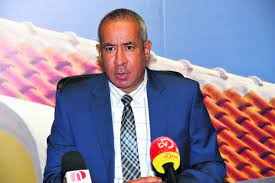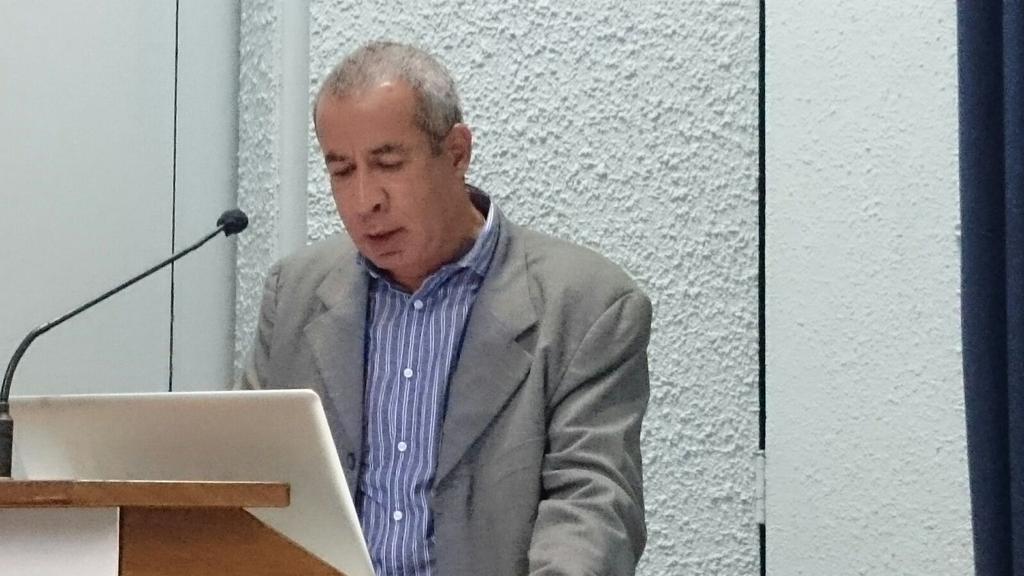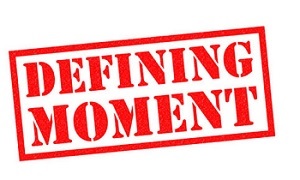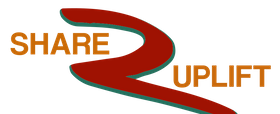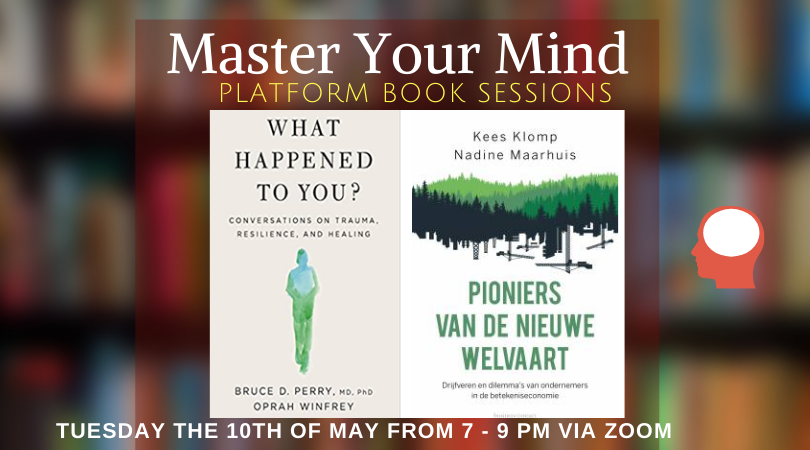Influencer Alberto ‘Chos’ Romero
In this week’s blog (18th of April – 24th of April) we interviewed Alberto ‘Chos’ Romero; we will invite you to our next MYM Book presentation on the 10th of May 2022; we will invite you to our next Personal Journey “Emoshon, kiko e ta?” our 13th, that starts on the 14th of May. We share some short videos based on “Pension Funds and Mentoring”. We will upload one of these videos every day on our facebook.com/share2uplift page
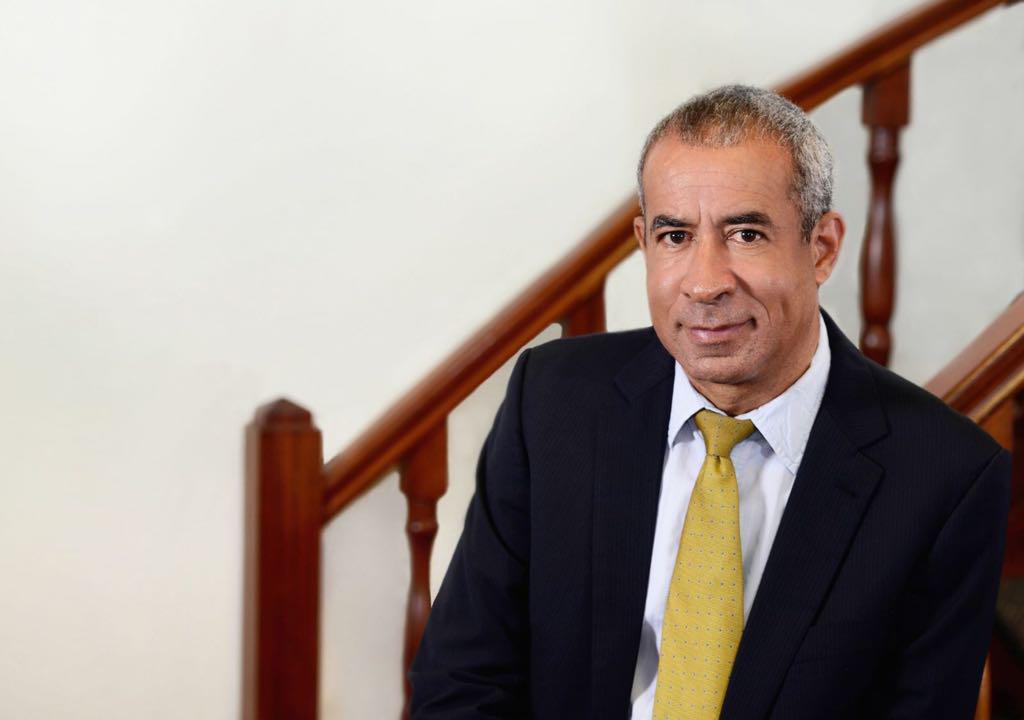
Chos, could you share with us some information about your family life?
I am the oldest child and only brother in a family where I also have 4 more sisters. I was born in Curaçao and both my parents worked at MCB for over 30 – 40 years. My mother has passed away and my father is still alive, he is 87 years old. As they both worked at a bank, this explains my passion for banking. Furthermore, my last name is Romero and it is linked to Venezuela, as my grandmother came from Venezuela, from my father’s side. My mother came from Curaçao and was born and raised in Otrobanda. I am now 64 years old and I retired 4 years ago, after that I continued my career up to now as a consultant. I am married. We have two children. My son is now 35 years old and he has a Bachelors degree in Econometrics from the Erasmus University in Rotterdam, but decided later on to become a pilot, as this was his passion since he was very young. He now works at American Eagle in the USA as a first officer and first in line to become a captain in the coming months. I have a daughter, and she holds a Masters degree Business Administration also at the Erasmus University in Rotterdam and after a brief stint at SOAB now works at the Central Bank (CSCB) here in Curaçao. I am a grandfather of two, one grandson from my son (living in the States) and one granddaughter from my daughter.
My parents have been very important in my life and this made the person I have become right now, as they both worked in the operations of the bank and both made long hours. The result of this was that we were raised to become very independent at an early age and look for solutions as much as possible within our means and contacts.
I was very close to my grandmother, as she lived three houses away from my parent’s home and I stayed with her until my parents came home. I learned a lot from her. She modeled hard work as she needed to work hard to make a living, selling bread and snacks, no matter what the circumstances were. As she was not fortunate enough to go and finish school, she stressed to me the importance of going to school, she taught me to be disciplined, punctual, to work according to a plan, and most of all she always would stress me to be “honest”. So I have learned important life lessons from my grandmother.
“I am humble enough to know that together with others we can solve more problems.”
I love to collaborate because of my background i have gained experience and have an indepth knowledge in finance and banking, but I am humble enough to know that together with others we can solve more problems. Over the years, time and time again, this proved to be a successful formula, irrespective of me being a director or manager, I knew of the potential of the group work and I have learned a lot from my colleagues over the years.
Could you share something about your educational background and your experience?
I went to the Sint Thomas College and after that to the MIL. In 1977 I went to Puerto Rico with a couple of friends for 3 years and got a bachelor’s degree in Economics and a minor Mathematics. After Puerto Rico, I went to continue my studies at the University of Tilburg, Holland where I got my Master’s Degree in Banking and Finance. In 1987, I got a job at the Central Bank of the then Netherlands Antilles and then started to work as a trainee at the Dutch Central Bank (DNB) in the Research department.
We know you to be a professional your whole life, and you have been in an executive function at the now CBCS for years. Can you expand a little on how it all started and tell us some more about your career path?
Over the years I got acquainted with different other aspects of the Central bank like research and policy department, the Treasury Department, the department that works with Financial Markets Models, the supervision Policy Department, and the department in charge of Integrity. I ended up in a managerial position ultimately and as was the culture at the Central Bank, a lot of attention is given to continuous training and upgrading.
I firmly believe, that a good Central Banker, or any professional for that matter, needs to almost continuously be involved in training, lots of training, to upgrade itself, for me it was at the IMF in Public Finance, training in financial products e.g. ( currency) Swaps, Securities, and other financial products such as mortgage back securities from the perspective on how to manage the supervision on these. Most of my training were done on location in Washington, New York, Amsterdam but also in Switzerland. This meant a lot of lot traveling over the years. In Switzerland, we had to do exams that were offered by professors and this has made me develop broad expertise and background in monetary policy, public finance, and financial programming. This continuous learning is a must if you want to continue to grow. I have also done a lot of self-study on the workings of the financial markets, governance, and integrity. By the way, my daughter that now works at CBCS is also going through these courses and training. But times have changed. In the past I was away from home a lot, online courses have made things a lot easier and these are one of the advantages of digitalization. Even the exams, you can do these online nowadays.
We know you have also been involved in different functions and committees over the years, can you expand on some of these functions and committees?
I have participated in numerous committees during my career. One of the more significant ones was the participation in the commission Van Lennep in 1995/1996, which resulted in a report on the debt problems of Aruba and Curaçao. “Het rapport van de tripartiete Commissie (van Lennep) Schuldenproblematiek Nederlandse Antillen en Aruba, 1996”. In this report, we analyzed the state of the public Finance and the economic situation on both islands during those days. We stated that if both governments kept borrowing, the Debt versus the GDP ratio, the so-called public Debt ratio would exceed the 40 % that was considered recommendable for small island economies. Based on our recommendations, the debt was converted into government bonds and our projections triggered the start of the implementation of an IMF-structural adjustment program as part of an Integral approach aimed at getting the public finance back on track from 1996 – to 1998. This program never was fully implemented.
In 2010 because of the restructuring of the separate status of Saint Martin and Curaçao, because of the debt relief by the Dutch government of 1.7 Billion Euro, the Debt Ratio was lowered to 30 % of the GDP under the understanding that the Debt Ratio shouldn’t exceed 40 % of the GDP. Nowadays the Debt Ratio is around 90 % again, not because of the Covid Pandemic this could explain only20 – 25 % . There other factors that has contributed to the exploding public debt ratio again and I would call that internal weaknesses. The lack of political will to take the necessary measures by respective governments is the main reason we ended back in this position. Some say that because we have this link with the Netherlands, this creates this lack of “political will” to address our structural problems.
What is your BIG WHY or driving motivation to be who you are right now?
I am on the supervisory board of Vidanova, the Pensioenfund, I have worked as a consultant for the Refinery and at UTS, after I retired from CBCS, but I am not ready to stop completely with my professional life and work. They say or determined that my son has ADHD, maybe I also have that, ha, ha, ha, so I can’t just sit still. I am investing more time in my two grandchildren, one in the USA from my son and one in Curaçao from my daughter. I am helping youngsters as a mentor and coach with their studies, I have done that in the past and I am doing it still when they approach me either directly or via their parents. I help them to follow their passion. As I have interviewed lots of youngsters in the past I have noticed that we have a lot of talents, but they need to be guided. At the CBCS we guide them and also have them be part of a continuous learning and training process. They should also have the opportunity to visit other countries like the USA, Holland and also islands in the region that tend to deal with the same types of problems we have a small island economy. All this helps them a lot.
This is why I wake up in the morning especially the mentoring of late, as I have noticed lots of students will go into a dip when things don’t go according to plan, which happens to each one of us in life. So I love mentoring them and helping them overcome fear, the fear to fail. I know that you can be trained to overcome fear, as the type of challenges they face, hasn’t changed since I was a student way back then.
“Helping other people basically, is my BIG WHY.“
Helping other people basically, is my BIG WHY. I think that I inherited this and the social and compassionate parts in me, from my father, whilst I inherited the no-nonsense business-like approach to life and work from my mother. I also learned a lot from my grandmother, who was very special to me, as I explained. But when she passed away I was studying in Holland and pending to make three exams and I asked my self the question what would my grandmother with this dilemma. And i choose not to attend her funeral way back then, but not being there really affected me and I needed a psychologist to help me deal better with that. I still apply the lessons I also learned from my grandmother.

To go back to my voluntary work, I am for 15 years now in the Fundashon Kontakto, which is related to Fundashon Totolica as the treasurer. I don’t get paid any type of remuneration, but the joy and satisfaction I get by being of service are priceless.
We have understood that you do a lot of work in commission for free, is that correct?
Well as a consultant I do charge for my services, but most of my commission work I do or did for free as part of my contribution to the community. I was in Cft (Colleges financieel toezicht) for years and never collected any remuneration. I did this work during the working hours at the CBCS, where I got paid a salary so that was my reasoning and it gave me a lot of satisfaction in return.
What are your plans for the coming years and when do you consider that you have been successful in your personal and business/professional life, let us say 5 years from now?
Professionally I am down scaling my work gradually and I will have stopped this work within 5 years from now, I would have stopped all my work in different commissions with one exception, and I may work for Fundashon Kontakto. I would spend more time with my grandchildren, just like I did with my children, teaching them to get the best out of their potential and talents. Furthermore, I have explained that a lot of youngsters have potential but they need some guidance and I will mentor and coach them if they approach me. This is very important, as I have noticed in my work for the SER that we have a new generation of youngsters with a lot of talent.
What are the challenges that you are dealing with? And how are you dealing with these different challenges you confront?
- I have taken notice that because of the social-economic situation, a lot of people leave the island. I don’t know what to do about this, some didn’t finish school and just take their bags and leave for Holland. They assume that it will be less troublesome living in Holland. This brings me to conclude that education is important, especially spending more time learning languages. The language I am not an expert in, but needs to be solved. At the highest educational levels, the language is English. Working on this issue will make it easier for students in the future to enter University without too many obstacles.
- Another challenge I see is that students have difficulties organizing their thoughts and writing them down on a paper in English. They have difficulties formulating the problem, the sub-questions, the analyses, and finalizing the paper with the conclusions with their own opinion, against a theoretical background they have studied. A lot are not trained well enough and they make it too long and not concise enough.
- I also see a challenge in the pension sector where today the “Defined Contribution System” is the most common system used in determining the pension that active workers are built on now. This is based on the principle that you built your pension rights, based on what you have contributed over the period that you paid pension premiums. So if you started your career with a lower salary of let’s say Ang 1200,- and at the end of your career you might have a salary of Ang 7000,-, when you retire and start getting your pension, this might mean a big income gap, at times 60% – 70 % lower, then what you were used, when you were still at work and getting a salary. This means that at an early stage employees need to start thinking about building additional income resources for when they retire or they will end up depending on extra income from their children that have their own lives and families to take care of. It is a challenge.
Do you use your inner voice to evaluate when dilemmas show up? How does that work for you?
I have this character, and if there is a problem that needs a solution, I would focus on it and dig deep into it until I have finalized it. I would consult those close to me and by doing all this my Inner Voice offers me quick solutions to the problem at hand. The only thing left to be done is to verify, to validate the solution, as I might have overlooked certain things.
How are you trying also to keep up with your knowledge and skills levels?
I follow webinars, especially from the IMF and I read articles on Pension fund Systems, the financial, and Foreign Exchange Markets I keep my knowledge of the areas I am involved in “up to par”.
What are your strengths?
I love to help people in what ways I can. I come from a family background where we were taught to share what we have.
I can listen with half an ear and have a solution right there and then. This is a strength but it is also a weakness.
I can easily mingle and connect with all kinds of walks of life.
Do you have hobbies or interests that you are also passionate about?
Sports, I love jogging. I used to play soccer, of late I watch soccer.
If you as Chos would meet a stranger on the bus (let’s say in Miami or Bogota Columbia) and they would ask you to introduce yourself, what would you answer?
I will never tell them about my background but start by sharing that I have a family and I have worked hard to reach my goals and do the work that is at hand at that moment.
How would you describe Chos in one word or one sentence?
If Chos commits, he will deliver on it. I always have a paper with bullets with deadlines in my drawer and I will work till I have reached all the deadlines. Chos is a collaborative professional who, as a group reaches the output.
Who are the persons that have inspired you the most in your career?
There is no doubt that would be my grandmother. She modeled hard work and discipline to earn money for a living. My mother for her no-nonsense character and my father for his compassion and his caring character.
What is a trait that is still a work in progress?
Take some deep breaths, listen to what others are trying to communicate, and then come up with solutions. Become a better listener.
What was a defining moment in your life?
The first defining moment was when I finalized my High School (MIL), left home, and went to Puerto Rico to study with some friends. All of them were successful in their studies and have made successful careers.
The second defining moment was earning a Master’s degree studying at the University of Tilburg in Holland and
Thirdly, becoming a father of two and seeing to it that they finalized their studies, both have earned Master’s degrees.
Where do you want to be 10 years from now with your career?
Ten years from now I would be completely retired. I would be traveling to the States and to Curaçao spending time in both places, close to my grandchildren.
What would you want your Loved Ones, family, friends, and others to say about you let’s say 20 years from now?
20 years from now they will say at my birthday party that I have helped a lot of people, in any way possible. I have always done things that I said that I would do. My family would be proud that I have always stayed authentic. I am an “Otrobandista” from the bottom of my heart and I can easily talk and share with people from all walks of life, in any way possible. That is who I am.
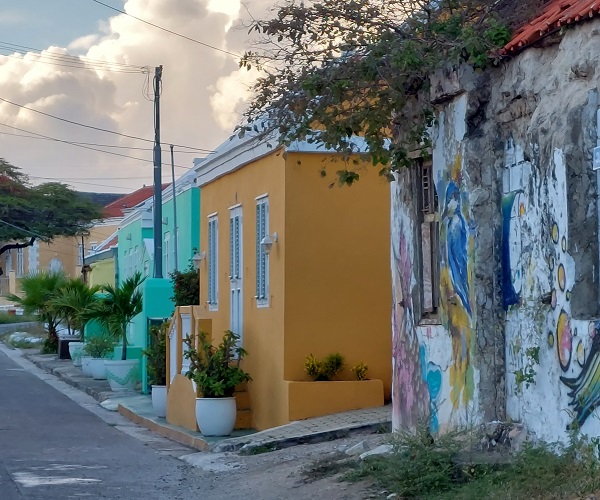
What makes you stay optimistic about the future of Curaçao as we are in the middle of a worldwide pandemic, recession, and in the middle of growing environmental challenges because of the global warming consequences?
We have so many things to improve on. We have clear roadmaps on what needs to be done to address issues in Curaçao.
What I have noticed is that every time we needed to act in the past 30 years, the decision-making stalls with whatever reason we came up with. This is happening now with the COHO.
I believe that the next generation of youth are well-prepared and I have put my hope on them, as we have to succeed.
One of the 250 Influencers of Curaçao
Alberto ‘Chos’ Romero is a disciplined, humble, collaborative, energetic, driven, caring, and socially engaged professional, financial expert, and last but not least a mentor for lots of students. He has earned his marks after an excellent career at the Central Bank. Apart from being retired, he is still working as a consultant, he is still very active socially and continues to be an engaged family man, as Chos can’t sit still. Having been primed in his upbringing to be disciplined, punctual, honest, to work according to a plan, social, compassionate but also if needed “no-nonsense” and business-like in life and work, made him successful in lots of work he has been involved in either working as a manager at CBCS and in his work as a member of numerous commissions and board member in a foundation over the past decades. Chos is a Go-Getter and meets targets he commits himself to. For a lot of his extra-curricular activities Chos doesn’t get a remuneration, which makes him all the more an exceptional human being. For all these reasons we deeply love and respect Chos, and we consider him one of the 250 influencers of the islands representing the “Financial Sector”. Look at the list of the Influencers we have interviewed or reported on, up to now.
The goal of the core group of Share2Uplift for 2022
The goal of the Share2Uplift movement is to: “Identify 250 leaders from all walks of life to connect, align and create impactful changes in all walks of life, which includes intergenerational collaboration by the end of 2022.” We will use interviewing Influencers, meet-and-greet events, “train-the-trainers”-programs on “Emotional Mastery” and “Intentionality “as national intervention strategies, to reach this goal on top of our goal to scale up the possibilities to connect, align and create impact via a virtual platform. We believe that by collaborating with Miguel Goede on the virtual Vision 2030 platform, we will accelerate the possibilities to connect the diaspora and others elsewhere in the world and on the island willing to constructively create impactful changes in Curaçao, to join.
As Share2Uplift, we are fully trying to align with this thinking of Center for Curriculum Redesign to promote this agenda in our educational systems and workplace. So, in that sense, we fully support any initiative to make our educational system 21st-century proof.
Share2Uplift aligners are those that:– Create an inspiring vision of the future;– Motivate and inspire people to engage with that vision;– Manage the delivery of the vision;– Coach and build a team, so that it is more effective at achieving the vision. These criteria are now being polished. We also consider these 5 values the most important ones for Share2Uplift aligners. They are:|
• Peace from within;
• Compassion;
• Respectfulness;
• Integrity;
• Responsibility.
As we will progress towards this goal, we will update you on the progress.
Next MYM-platform session via Zoom
Our next MYM-platform session will be on the 10th of May (the 2nd Tuesday of the month) via Zoom, where we will present the books ‘What happened to you?’ and the book ‘Pioniers van de welvaart ‘.
‘What Happened to You?’ will be presented by Ivan Kuster.
Our earliest experiences shape our lives far down the road, and ‘What Happened to You?’ provides powerful scientific and emotional insights into the behavioral patterns so many of us struggle to understand.
“Through this lens we can build a renewed sense of personal self-worth and ultimately recalibrate our responses to circumstances, situations, and relationships. It is, in other words, the key to reshaping our very lives.”―Oprah Winfrey
This book is going to change the way you see your life. Have you ever wondered “Why did I do that?” or “Why can’t I just control my behavior?” Others may judge our reactions and think, “What’s wrong with that person?” When questioning our emotions, it’s easy to place the blame on ourselves; holding ourselves and those around us to an impossible standard. It’s time we started asking a different question.
Through deeply personal conversations, Oprah Winfrey and renowned brain and trauma expert Dr. Bruce Perry offer a groundbreaking and profound shift from asking “What’s wrong with you?” to “What happened to you?”
Here, Winfrey shares stories from her own past, understanding through experience the vulnerability that comes from facing trauma and adversity at a young age. In conversation throughout the book, she and Dr. Perry focus on understanding people, behavior, and ourselves. It’s a subtle but profound shift in our approach to trauma, and it’s one that allows us to understand our pasts in order to clear a path to our future―opening the door to resilience and healing in a proven, powerful way.
‘What happened to you?’ will be presented by Ivan Kuster.
Pioniers van de welvaart will be presented by Miguel Goede.
In ‘Pioniers van de nieuwe welvaart’ gaan Kees Klomp en Nadine Maarhuis dieper in op de betekeniseconomie, die alsmaar groeit. Ondernemers als Tony’s Chocolonely, Dopper en De Vegetarische Slager zijn succesvol bij een groot publiek en in alle hoeken van de samenleving is belangstelling voor ondernemers met een maatschappelijke missie.
Maar een financieel gezonde business runnen die tegelijk sociale en ecologische meerwaarde creëert is niet altijd gemakkelijk. Welke dilemma’s ervaren de pioniers van de nieuwe welvaart bij het bouwen van hun missiegedreven bedrijven? En hoe tackelen ze die?
In dit boek vertellen impactondernemers openhartig over hun pieken en dalen en delen ze de lessen uit hun praktijk. Parallel daaraan schetsen Klomp en Maarhuis de essentiële elementen van de betekeniseconomie. Dit boek is daarom verplichte kost voor beginnende én groeiende pioniers – maar ook voor leiders in gevestigde bedrijven die de omslag naar maatschappelijke impact willen maken.
‘Pioniers van de welvaart’ will be presented by Miguel Goede.
Date: 10th of May
Time: 7.00 – 9.00 PM
Entrance fee: Free
Subscribe by emailing us: sixtaivan@gmail.com and we will send you the Zoom link so that you can participate in our presentation of this book.
New workshop of 15 weeks in Papiamentu on Emotions Personal Journey 13
Starting 14th of May 2022
Gran majoría di nos komo ser humano, ta pasando diariamente den un fluho konstante di diferente pensamentu i emoshonan. Esaki ta konta mas aún awor ku nos ta den e gara di COVID-19. Emoshon ta nos kompas interno. No tin emoshon malu ni bon, emoshonan tei pa guía. Nos tin ku atende ku nan i no neglishá, reprimí ni suprimí nan, pa nan no kausa efektonan negativo despues ku ta inesperá. Emoshonan por ta un insentivo pa nos desarojá e potenshal inlimitá ku kada un di nos tin komo persona.
Nos ke yudabo den desarojá esaki, dor di ofresé bo un “personal journey” di 15 siman:
• maestría di bo emoshonan;
• kon di deshasí di emoshonan atrapá;
• biba un bida mas intenshonalmente;
• skucha bo intuishon mas mihó pa asina bo por ta mas kreativo i
• kon di laga loke bo a sinja bira un kustumber i transformabo komo persona.
Tuma kontakto ku un di nos ku ta e 3 fasilitadornan pa inskribi for di tempran:
Haydee Hermans Soul Garden na telefón: 5639848. E-mail: soulgardenCuraçao
O’dennis Daal Master Your Mind na telefón: 5130409. E-mail: odennis.daal@mymcur.com
Ivan Kuster Uplifting BV na telefón: 6986437. E-mail: ivan@upliftingCuraçao.com or sixtaivan@share2uplift.
Personal Coaching tips
We share some short videos based on “Pension Funds and Mentoring”. We will upload one of these videos every day on our facebook.com/share2uplift page
Pay-as-you-go vs. funded pension plans? on Vimeo
What is a Central Bank? – YouTube
CFA Level I FRA – Defined contribution vs Defined benefit plans – YouTube
Mentoring: How to be an effective Mentor – Golden Nugget #6 – YouTube
The Benefits of Mentoring – YouTube
For Students and Their Mentors, Learning Goes Both Ways – YouTube

